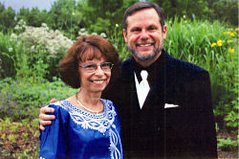
[This is a catch-up posting, which explains the title.]
Difficult months
The last two months have been amongst the most difficult of our missionary life. The continued lack of electricity, lack of communications, colleagues disappointing us, the local chief selling the cross hill, suffering children coming to the nutrition clinic, miners from other countries (particularly China) taking Congo’s mineral wealth and leaving nothing for the Congolese, corrupt politicians selling the country, and David’s shingles. Sometimes you wonder where God is in all of this. Well, He is right there inspiring you to pray. It is such a comfort to know how you are keeping us before the throne of grace and petitioning the Lord on our behalf and also on behalf of the Congolese people.
Pray for Cross Hill, electricity
On the political side and also with the cross hill, it will take time to work out and we need to continue to pray. We hope that the electricity will soon be back. Definitely David’s shingles have been very minor and have not moved. The rash is drying up nicely and he has had very little pain. He still gets tired quickly. Thank you for those prayers.
Servant leaders
Last week, we spent in Lubumbashi as part of a team giving seminars in the Master’s of Leadership program. It was exciting to see leaders from the different denominations; Para church organizations and the secular world realize that Jesus has given us a new paradigm of leadership, being servant-leaders. This is a huge revelation to them since the only models they have had was that of a big boss (colonizers, village chiefs and military dictatorships). God is good at challenging our preconceptions and call us to live a different life style in His Kingdom.
A graduating student couple
Our graduating students are gradually leaving to take their appointments as the Annual conferences are taking place. One such couple is Robert Kalau and his wife Umba. We wrote about them a few years ago when they had just entered the ministry. During the last two years they have been in the masters program at the seminary. We shared together and prayed before they left. Robert and Umba shared part of their ministry with us.
This couple had been in an area that had had been heavily influenced by the violence of war, the Mai Mai militias, and countless atrocities including cannibalism and witchcraft. In the midst of this they brought the light and good news of the Jesus Christ and the love, forgiveness and freedom He brings to His children. They sometimes had to travel by foot, bicycle and canoe to reach villages where they started churches. In one village, a former Mai Mai rebel is now the lay leader.
Isn’t this what it is all about. God’s love reaching down and touching people. Sure we get tired, depressed and just plain fed up. Guess what, the Lord is still at work. It is by His Spirit that these things are done. To Him be the glory!
Thanks for being there for us.

 This takes you to a separate page for just that blog posting.
This takes you to a separate page for just that blog posting.




